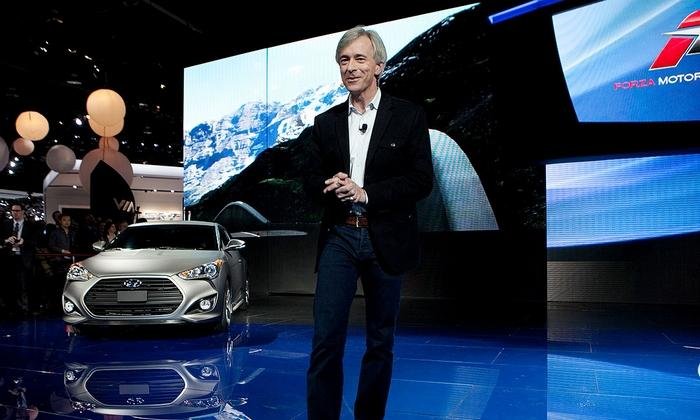Google Hires TrueCar's Krafcik to Steer Auto Project

Krafcik, 53, a manufacturing expert and a fan of disruptive technology, comes to Google from car-shopping service TrueCar Inc., where he has been president since April 2014. Before that he was CEO of Hyundai Motor America from 2008 to 2013, guiding the Korean automaker through a period of rapid growth.
In Krafcik, Google gains a well-known and widely respected executive with ties across the global auto industry, which could help the tech company solidify relationships with suppliers and other partners as it seeks to scale up its effort.
"This is a great opportunity to help Google develop the enormous potential of self-driving cars,” Krafcik wrote in an email to Automotive News. “This technology can save thousands of lives, give millions of people greater mobility, and free us from a lot of the things we find frustrating about driving today. I can’t wait to get started."
‘Still early days’
Google, which launched its project in 2009, has signaled that it intends to introduce self-driving cars by 2020. It’s currently testing experimental cars on public roads in its hometown of Mountain View, Calif., and in Austin, Texas, logging 10,000 miles per week in autonomous mode with trained drivers sitting behind the wheel.
It is “still early days” for the technology, Google spokeswoman Courtney Hohne told Automotive News, though the hiring of Krafcik as CEO of the self-driving cars project clearly suggests Google feels good about its progress.
“This is about getting ourselves ready for the future,” Hohne said.
Krafcik will start at Google in late September and be based at the company’s headquarters in Mountain View. Chris Urmson, the former Carnegie Mellon University robotics researcher who is currently director of the project, will continue to lead technical development.
It is relatively uncommon to name a CEO of a project within another company, but Google’s car project may eventually become its own entity.
Last month, Google announced a corporate reorganization under which its namesake search engine, Google, will become a subsidiary of a holding company called Alphabet Inc. Each subsidiary will be denoted by a letter; Google, for instance, will be “G.”
Hohne said the self-driving car program “would be a good candidate at some point in the future to become an alphabet company, but not yet.”
A manufacturing maven
By hiring Krafcik, who studied mechanical engineering at Stanford University and business at the Massachusetts Institute of Technology, Google gains more than deep connections within the global auto industry. It also gains an executive with hands-on experience in product development and manufacturing, which could be particularly useful if Google decides to deploy self-driving cars at scale.
Early in his career, while working at MIT, Krafcik was part of the research team that coined the term “lean production” with its seminal study of Toyota’s efficient manufacturing system, The Machine That Changed the World.
Hohne said Krafcik’s background shouldn’t be interpreted as a sign that Google intends to become a manufacturer. Last year, when Google unveiled its first custom-built prototype, a two-seat pod with a removable steering wheel and pedals, Google procured its parts from traditional automotive suppliers such as Bosch and Continental, and had the finished car assembled by Roush Enterprises in suburban Detroit.
“We’re not going to make cars ourselves,” Hohne said. “We know what we’re good at, and we’ll partner with many different companies to bring this technology into the world safely.”
Another exit for TrueCar
Krafcik leaves his post as president of TrueCar at a time of upheaval for the Santa Monica, Calif., company.
When he was recruited by TrueCar founder and CEO Scott Painter in early 2014, the company seemed to have recovered from a near-collapse in 2012 brought on by clashes with regulators and a revolt among the dealers who pay TrueCar for sales leads. Many of those conflicts have since resurfaced in the form of lawsuits by dealers challenging TrueCar’s business practices.
Last month, as TrueCar reported disappointing second-quarter earnings and its stock plunged, Painter announced that he would resign as CEO. A search for his successor is still under way, but it’s unclear whether Krafcik was in the running for the job.
Related News
